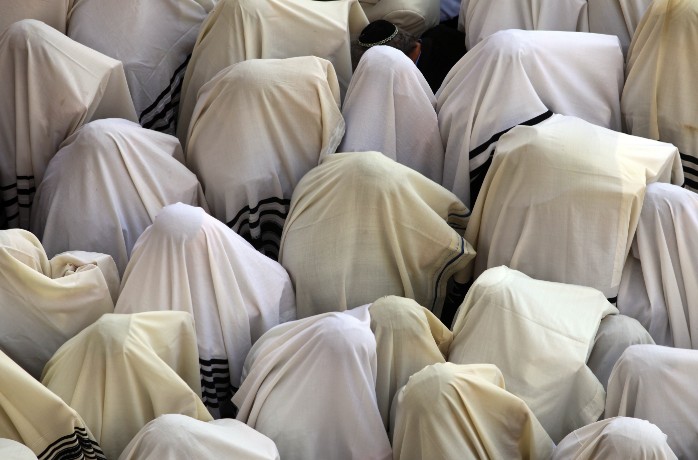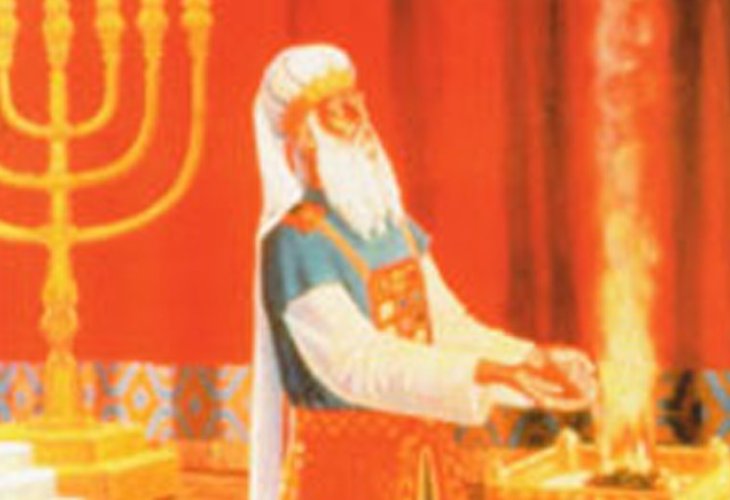The Lineage and Responsibilities of the Kohen
A Kohen is a direct descendant of Aaron, the brother of Moshe and the first Kohen Gadol (High Priest). According to Torah law, the priesthood is an inherited status passed down to Aaron’s male descendants, who form a distinct group within the Jewish people. Today, individuals are considered Kohanim based on longstanding family tradition, as formal genealogical records tracing lineage back to Aaron are no longer available.
Though the Temple service has been suspended since the destruction of the Second Temple, Kohanim still retain unique responsibilities. These include Birkat Kohanim (the priestly blessing) performed during prayer services (outside of Israel, in Sephardic communities, this blessing is recited daily; in Ashkenazic communities, it is only recited on the holidays) and receiving the redemption money in a Pidyon HaBen (redemption of the firstborn) ceremony. These mitzvot (commandments) remain in effect even in our times.
Two prohibitions apply to Kohanim even after the Temple’s destruction. First, marriage restrictions: a Kohen may not marry a divorcee, a woman who underwent chalitzah, a woman of compromised lineage (chalalah), or a convert. A regular Kohen may marry a single woman or a widow, while the Kohen Gadol (High Priest) was only permitted to marry a virgin. The second prohibition involves ritual purity: Kohanim may not come into contact with the dead or be under the same roof as a corpse. They must avoid cemeteries and be cautious in hospitals where a death may have occurred. However, a Kohen is permitted, indeed obligated, to become ritually impure for seven close relatives: his father, mother, son, daughter, brother, sister, and wife.
Kohanim are also honored in other religious contexts. There is a mitzvah to give precedence to a Kohen, for example, allowing him to lead Birkat HaMazon (Grace After Meals), giving him the first aliyah during Torah reading, and offering him the most distinguished portion at a meal. The Talmud shares a story that illustrates this principle: when Rabbi Preida was asked why he merited long life, he replied, “In all my days... I never recited a blessing before a Kohen.”
 The Priestly Blessing (Photo: Avir Sultan / Flash 90)
The Priestly Blessing (Photo: Avir Sultan / Flash 90)Tradition, Names, and the Temple Legacy
Like the rest of the tribe of Levi, Kohanim were not allocated territory in the Land of Israel. Their lives were meant to be devoted to serving in the Temple and teaching Torah. In lieu of a land inheritance, the Torah granted Kohanim 24 specific gifts, including portions of sacrificial offerings, agricultural gifts (for example, terumah), and other ritual allocations, as compensation for their sacred work.
The Hebrew word “Kohen” is believed to derive from the root ken, which indicates preparation, as the Kohen’s role involved preparing and offering sacrifices. Interestingly, in ancient Egyptian, “Kohen” was a term used to describe someone of high status or wealth. Some commentaries interpret the word as connoting a leader or nobleman.
During the reign of King David, the Kohanim were divided into 24 mishmarot (rotations). Each week, one rotation served in the Temple. Every mishmar was further divided into seven batei av (paternal families), each serving on a different day of the week during their shift.
Several last names are traditionally associated with priestly lineage. These include: Kohen, Kagan, Kahana, Bar-Kohen, Ben-Kohen, Koganzon, Kohn, Kahn, Kahaneman, Kohner, Cohenner, Barkagan, Koen, Coan, Kagan, Kaplan, Kohanim, Cohenson, Cohan, Barkan, Mazeh (an acronym for Mizera Aharon HaKohen, meaning “from the seed of Aaron the Priest”), and Katz (an acronym for Kohen Tzedek, “righteous priest”). The Azoulay family is also considered priestly, as the name forms the Hebrew acronym for the marital prohibitions: Isha Zonah VeChalalah Lo Yikach—"He shall not take a woman who is a harlot or profaned" (Leviticus 21:7).
We hope that the day will come when Kohanim will once again stand in the rebuilt Temple and fulfill their sacred service in full.


